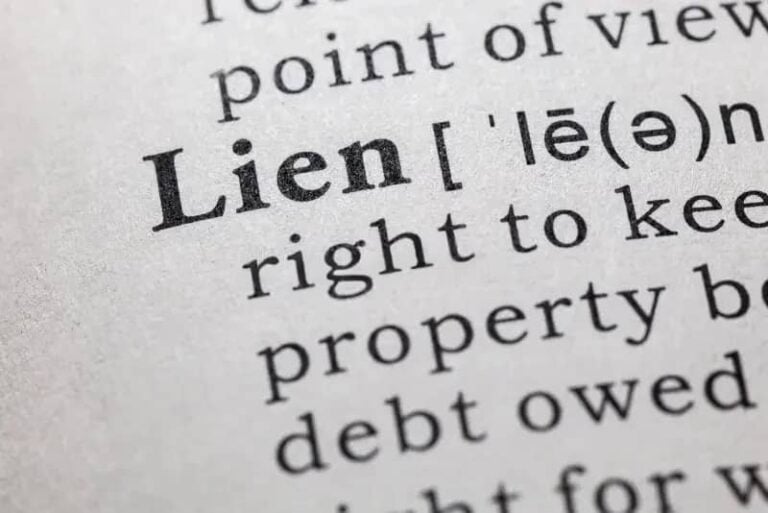How to Stop Foreclosure in California: 11 Ways to Avoid Foreclosure Sales
If you’re facing foreclosure of your home, the matter of how to stop foreclosure in California is very likely at the top of your thoughts.
There are many challenges associated with this financial burden, but you may be able to avoid the foreclosure sale of your home. The sooner you begin to explore your options, the more favorable the outcome is likely to be.
Table of Contents
How to avoid foreclosure in California the quick way
If you’re being threatened with foreclosure on your home and the auction date is looming, acting quickly is key. Many people in your situation feel paralyzed by this embarrassing financial predicament, but the truth is that you’re not alone.
The pandemic and difficult financial times have left many homeowners in the same boat, and you’ll be glad to hear that you do have options when it comes to stopping the California foreclosure process.
The most important point to keep in mind in the face of potential foreclosure is not to panic but, instead, to take action now. Too often, homeowners keep the matter out of sight and out of mind until they’re forced to face the truth.
By moving beyond your denial and reaching out for the help you need – regardless of the path forward that you choose – you maximize your options and decrease the risk that you will lose your home to foreclosure.
While getting your mortgage loan payments up to date may not be an option, this isn’t the only remedy. To begin, California lenders who implement the foreclosure process must abide by the state’s homeowner bill of rights, which helps to level the playing field.
A Southern California real estate investor who pays cash for houses – even houses in foreclosure – may be able to help. SoCal Home Buyers pays cash for homes in Southern California, and the benefits are clear.
The process is speedy, it helps to wipe the financial slate clean, and it can help protect your credit rating. In the end, any equity that you’ve built up over your years of ownership can lead to cash in your pocket – in addition to getting you out from under the foreclosure.
How to stop foreclosure in California
As long as your home that is being foreclosed upon hasn’t gone to auction, you may be able to stop the foreclosure process.
In fact, there are a range of ways to stop foreclosure in California as long as you act before it’s too late to stop the wheels that have already been put into motion.
1. Bringing your loan current
Until five days before the foreclosure sale, you can halt the process by making loan payments and bringing your mortgage current. Whether the bank proceeds with foreclosure at this point, however, is up to them. By restoring your mortgage in this way, you may get a fresh financial start.
When you make payments and demonstrate to the bank that you’re ready to do what it takes to stop the foreclosure, they’ll very likely be more interested in working with you on the matter.
This is an option that will allow you to stay in hour home. If you’ve taken a serious financial hit, however, or if your mortgage payments have risen considerably, this approach may not be sustainable.
2. Requesting a loan modification
Many homeowners facing foreclosure on their properties in California seek loan modifications through their lenders. The best time to reach out for a modification is as soon as you recognize that you’re facing a financial problem, but there is nothing stopping you from attempting to use this approach as a means of avoiding foreclosure up to the last minute. Some banks are simply more inclined to make loan modifications than others.
When you apply for a loan modification, it’s a form of loss mitigation. Because your lender can’t engage in what is called dual tracking, the foreclosure process will be delayed while your loan modification application is pending. Some lenders are highly motivated to work with borrowers on foreclosure prevention like loan modifications, while others are not.
3. Making a forbearance agreement
If you’ve been through a difficult situation like any of the following, your lender may be interested in making a forbearance agreement with you:
- You’ve suffered a serious illness.
- You’ve been through a divorce.
- You’ve lost your job.
- You’re taking care of a gravely ill family member
Any of these can affect your financial situation, and if your lender recognizes this fact, they may offer a forbearance agreement that could involve lower payments or even no payments for a specific amount of time.
If you’re able to demonstrate that the financial downturn you’re experiencing is a short-term rather than a long-term problem, your lender may give you a kind of grace period that buys you the time you need to catch up.
4. Refinancing
With interest rates on the rise, now isn’t a great time to refinance. If your lender, however, is a real stickler, you may be able to find a bank that will be more lenient in the future if you run into trouble again – making refinancing more of a preemptive option.
Further, if your current interest rate is quite high, shopping around for a lender to refinance your mortgage is worth a shot. It’s important to point out, however, that – if your credit rating has already been affected by your inability to cover your mortgage payments – it will affect your ability to obtain favorable refinancing.
5. Making a short sale
Those who don’t qualify for any form of financial assistance in the face of foreclosure may want to consider a short sale. In a short sale, you must obtain the lender’s approval to sell your home for less than what you owe on it.
When it comes to short sale vs foreclosure, the following apply:
- A short sale can help salvage your credit, while foreclosure stays on your credit report for seven years.
- A short sale allows you to continue living in your home during the sale process, while foreclosure means the lender will immediately takes ownership of your home.
- With a short sale, you improve your chances of purchasing a new home aren’t as bleak as they would be after a foreclosure.
Because foreclosure avoidance is generally in your best financial interest, a short sale is not a terrible option – if you’ve already exhausted many of the others on this list.
How to short sale your home in California? You’ll need to first obtain permission from you lender. In the process, the lender will agree to release any of your debt that remains after the sale goes through.
Points to keep in mind include that you can’t engage in a short sale if you’re in the bankruptcy process, that your lender will need to approve the deal and will be looking for a price that exceeds the expected foreclosure value, and that the process is both clunky and time consuming.
While a short sale is generally less harmful to your credit score than a foreclosure would be, the difference may not be as significant as you’d hope. Your credit is likely to take the most serious hit during the time period when you’re actively missing mortgage payments, and by the time foreclosure rolls around, the bulk of the damage to your credit may already be done.
A final issue to consider is that, while your additional debt will be released in a short sale, you may face tax implications. For example, if the house sells for $20,000 less than you owed on it, that $20,000 can be taxed as regular income, which generally involves a steep tax rate.
6. Obtaining a reverse mortgage
Another option may be a reverse mortgage, but this only applies to homeowners who are at least 62 years old and have built up equity in their home. With a reverse mortgage, you borrow against that equity for a lump-sum amount that you can use to make your mortgage payments from or for a monthly mortgage allowance.
As time passes, the equity in your home will decrease while your reverse mortgage balance will increase. When you move out, sell your home, or pass, the reverse mortgage will be repaid. Reverse mortgages are generally considered financially dubious, but if it’s your only option for saving your home and that is your goal, it might be worth it.
7. Declaring bankruptcy
While bankruptcy may seem like a dire option, it can offer real benefits, and it ensures that the foreclosure proceedings will stop. In order to declare bankruptcy, you must qualify, but if you do qualify, simply filing bankruptcy papers triggers an automatic stay that stops the foreclosure process and prevents the lender from going after missed payments from you.
Chapter 13 bankruptcy will allow you to restructure your unsecured debt via a repayment plan that you’ll have three to five years to pay off. This can keep you in your home and can provide you with the breathing room you need to get your finances back in order.
Chapter 7 bankruptcy, on the other hand, can only delay the foreclosure, which can buy you the time you need to make new living arrangements.
8. Filing a lawsuit to stop the foreclosure process
If you’re facing a non-judicial foreclosure, you may be entitled to file a lawsuit against your mortgage lender. A non-judicial foreclosure is one in which the lender doesn’t file an actual foreclosure lawsuit but, instead, goes through either the Clerk of Court or the Sheriff’s Office in the county where your home is located.
The lender is, nonetheless, required to send you a notice of default and to allow you a specific number of days to catch up with your missed mortgage payments. Non-judicial foreclosures are generally based on failure to make mortgage payments.
in order to successfully sue your mortgage lender, you’ll need to prove that they violated California’s applicable state laws, which include the Homeowner Bill of Rights.
This typically means that one of the following applies:
- The lender failed to follow the rules and requirements that guide foreclosure
- The lender failed to comply with California’s mediation requirements
- The lender cannot prove ownership of the promissory note
Bringing a successful lawsuit against your lender is a legal challenge that only applies in highly specific situations. If you believe this option may apply in your situation, having an experienced California foreclosure attorney in your corner is always in your best interest.
9. Seeking a deed in lieu of foreclosure
If you have reached the point that there’s little chance of stopping the foreclosure you are facing, you may be able to negotiate a deed in lieu of foreclosure with your lender. While the effect is the same as a foreclosure and you will still lose your home, it can mitigate the damage to your credit report.
A deed in lieu of foreclosure involves you handing over the deed to your home to the lender, and – in exchange – the lender cancelling all related debt. At this point, you’ll need to move out of your home.
10. Avoiding scams
If you are facing foreclosure on your home, you have plenty to worry about, and it’s unfortunate that there are scammers out there who are more than willing to take advantage of your vulnerability.
Some of the tell-tale signs of a we buy houses scam include the following:
- They represent themselves as a foreclosure rescue company that helps homeowners avoid foreclosure
- They offer to buy your home temporarily and to make your mortgage payments in the interim
- The agreement they make with you is oral only – there is no written contract
- The contract includes blank spaces – that they can fill in later without your knowledge
- They offer to help you obtain affordable financing to avoid foreclosure – for a fee
- They offer forensic loan auditing services
- The foreclosure representative contacts you personally by mail or phone
- the foreclosure representative provides very few details about the foreclosure process
- The foreclosure representative tells you that the foreclosure process will be simple and swift – when foreclosures are neither
11. Selling your home to a real estate investor
Can I sell my house before foreclosure? Yes, you can sell your house that’s in foreclosure if you follow the legal requirements and do everything above board. If putting the foreclosure behind you and salvaging your finances to the degree possible is your goal, your best option may be to sell your home to a real estate investor.
At SoCal Home Buyers, we pay cash for homes throughout Southern California – even homes that are already in foreclosure – and we take care of all the pesky details for you. We’ve streamlined the process to include only the following basic steps:
- Give us a call at 951-331-3844—or fill out the short form below—to request your fair cash offer.
- Await our prompt response to discuss your property in greater detail and schedule a one-time inspection that allows us to offer the highest amount possible.
- At the time of the inspection, our in-house inspector will quote you a fair cash offer, and if you’re on board, you can consider your home sold!
- Choose your closing date, and leave the rest to us. You can choose payment via check or wire transfer. It simply doesn’t get any easier.
Can you stop a notice of trustee sale?
A notice of trustee sale (NTS) is a notice the lender issues in relation to foreclosure regarding the auction of the property. This is considered the final auction notice or final foreclosure notice, and it serves as your last warning before the lender sells the property at auction to cover what you owe on your mortgage.
If you’ve been going through the foreclosure process to this point – doing everything you can in your attempt to shut it down – and the NTS arrives anyway, it’s unlikely that your repeated efforts are going to make any difference this late in the game.
If, on the other hand, you’ve been ignoring the issue in a stress reaction, which is not uncommon, you may still have a chance to turn things around by acting quickly.
How to stop a trustee sale
While you don’t have much time left once the matter of a trustee sale is addressed, you may have options, and they include:
- Filing for bankruptcy, which will stop the foreclosure process in its tracks
- Seeking a loan modification, which some banks are open to
- Bringing your loan current, such as by selling other assets
- Making a short sale
- Pursuing a lender misconduct lawsuit – in highly specific situations
- Seeking a deed in lieu of foreclosure
Another option is selling to a real estate investor like SoCal Home Buyers in Southern California. If the circumstances are right and you like the offer we make, we’ll buy your house for cash and make this very difficult chapter in your life disappear entirely.
Our Key takeaways on how to stop a foreclosure sale in California
If the matter of foreclosure has reared its ugly head in your life, the most important point to keep in mind is that acting quickly is always in your best interest. Until the lender has sold your home out from under you, however, there may be options available to you.
And if selling the home and putting the matter behind you is your priority, reaching out to a real estate investor in Southern California may be the right option for you.










